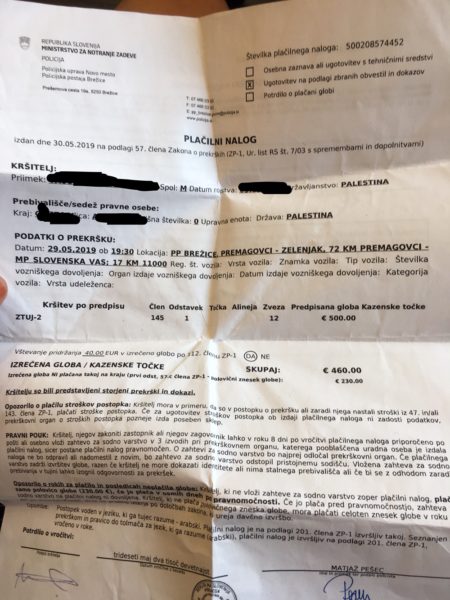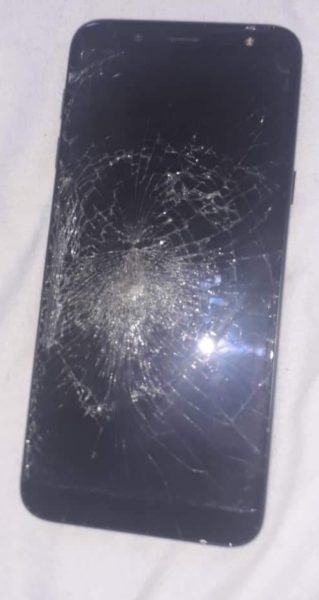We begged for asylum in Slovenia, but the police told us they will take us back to Croatia
| 29.05.2019 | Bosnian-Croatian border, near Velika Kladuša | Border Violence Monitoring Network | 45.1840797, 15.8068421 | Croatia | Bosnia | yes | no | yes | no | no | no | 15 - 28 | 20 | Palestine, Syria | detention, fingerprints taken, personal information taken, papers signed, denial of food/water | 17-18 | exposure to air condition and extreme temperature during car ride, threatening with guns, destruction of personal belongings, theft of personal belongings, reckless driving | <p>9 Slovenian police officers, 2 vans; 8-9 Croatian police officers, 3 vans</p> |
On the 22nd of May at 12:00AM, a group of 20 individuals from Palestine and Syria left Velika Kladuša (BiH) and walked to the Croatian border. They arrived at the border around 2:00AM. After entering Croatia, they walked in the forest for seven days. They crossed the Croatian/Slovenian border on the 29th of May. After walking approximately ten kilometres into Slovenian territory, a group of five Slovenian police officers (four male, one female) approached them at 8:00AM in the forest between the villages of Koritno and Laze (SLO). The respondent reported that when the police saw the group, one officer aimed a gun at them, but did not shoot. The police assorted all twenty to a parked van nearby. They waited inside the vehicle for one hour before the police officers began driving. The group were driven approximately 30 minutes to what the respondent described as a "small jail." The police ordered all 20 individuals into the cell. They group stayed here for 24 hours without access to food, water or a toilet. The respondent reported that the Slovenian police took 200 EUR from him and took a total of 1200 EUR from the rest of the group. There was a translator present at the jail. The respondent could not identify where he was from by his accent. The group members gave their personal information to the translator and the police gave them documents to sign. The police also took the finger prints of the group members during this time. 
"Ten [people in the group] begged the Slovenian police to let us stay and apply for asylum, but they told us 'no, you will go back to Croatia'"
On May 30, at around 12:00PM, four different police officers (three men, one woman) ordered the group of 20 individuals into one police van and they drove one hour to the Croatian border. It was reportedly in the area of Jesenice na Dolenjskem. "It was very crowded and hot in the van with so many people. [The police] drove very fast to the border." The group arrived to the Croatian border around 1:00PM. Four to five Croatian police were waiting there with three vans and they ordered the group into the vehicles and drove them approximately one hour to another "jail." Once inside the building, the police collected everyone's phone. All 20 people were placed in one cell. There was a tap with water in the cell which they could drink from, but the police denied them access to food or to use the toilet. The group spoke very little to the officers. They were not given any documents to sign, nor did they ask the group for their identifying information. On May 31, after 24 hours in the cell, the police released them from the jail and ordered the group into a van that was waiting for them in front of the cell. The respondent believes that the four police officers drove them approximately three hours to the Bosnian border. On the border, the police gave the phones back to the group but the screens had been smashed and the charging ports were destroyed. They were all then pushed into Bosnian territory. The respondent could not recall the exact location. But he maintained it was near a "village in the area of Velika Kladuša." 
"When we got to the border, the police said 'go, go."
From here, the split into four groups and paid ten Euro each to ride in a taxi to Velika Kladuša (BiH).
